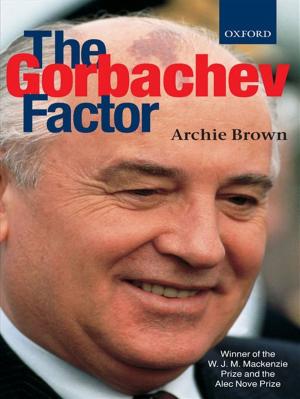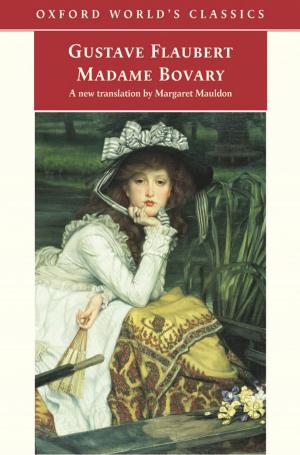Mrs Beeton's Book of Household Management: Abridged edition
Abridged edition
Nonfiction, Food & Drink, History, Fiction & Literature| Author: | Isabella Beeton | ISBN: | 9780191605413 |
| Publisher: | Oxford University Press, UK | Publication: | March 16, 2000 |
| Imprint: | OUP Oxford | Language: | English |
| Author: | Isabella Beeton |
| ISBN: | 9780191605413 |
| Publisher: | Oxford University Press, UK |
| Publication: | March 16, 2000 |
| Imprint: | OUP Oxford |
| Language: | English |
A founding text of Victorian middle-class identity, Household Management is today one of the great unread classics. Over a thousand pages long, and written when its author was only 22, it offered highly authoritative advice on subjects as diverse as fashion, child-care, animal husbandry, poisons, and the management of servants. To the modern reader expecting stuffy moralizing and watery vegetables, Beeton's book is a revelation: it ranges widely across the foods of Europe and beyond, actively embracing new foodstuffs and techniques, mixing domestic advice with discussions of science, religion, class, industrialism and gender roles. Alternately fashionable and frugal, anxious and blusteringly self-confident, Household Management highlights the concerns of the ever-expanding Victorian middle-class at a key moment in its history. - ;'As with the commander of an army, or the leader of any enterprise, so it is with the mistress of a house.' A founding text of Victorian middle-class identity, Household Management is today one of the great unread classics. Over a thousand pages long, and written when its author was only 22, it offered highly authoritative advice on subjects as diverse as fashion, child-care, animal husbandry, poisons, and the management of servants. To the modern reader expecting stuffy moralizing and watery vegetables, Beeton's book is a revelation: it ranges widely across the foods of Europe and beyond, actively embracing new food stuffs and techniques, mixing domestic advice with discussions of science, religion, class, industrialism and gender roles. Alternately fashionable and frugal, anxious and blusteringly self-confident, Household Management highlights the concerns of the ever-expanding Victorian middle-class at a key moment in its history. The abridged edition does justice to its high status as a cookery book, while also suggesting ways of approaching this massive, hybrid text as a significant document of social and cultural history. - ;sold out in Central London book shops within weeks - Red, August 2000
A founding text of Victorian middle-class identity, Household Management is today one of the great unread classics. Over a thousand pages long, and written when its author was only 22, it offered highly authoritative advice on subjects as diverse as fashion, child-care, animal husbandry, poisons, and the management of servants. To the modern reader expecting stuffy moralizing and watery vegetables, Beeton's book is a revelation: it ranges widely across the foods of Europe and beyond, actively embracing new foodstuffs and techniques, mixing domestic advice with discussions of science, religion, class, industrialism and gender roles. Alternately fashionable and frugal, anxious and blusteringly self-confident, Household Management highlights the concerns of the ever-expanding Victorian middle-class at a key moment in its history. - ;'As with the commander of an army, or the leader of any enterprise, so it is with the mistress of a house.' A founding text of Victorian middle-class identity, Household Management is today one of the great unread classics. Over a thousand pages long, and written when its author was only 22, it offered highly authoritative advice on subjects as diverse as fashion, child-care, animal husbandry, poisons, and the management of servants. To the modern reader expecting stuffy moralizing and watery vegetables, Beeton's book is a revelation: it ranges widely across the foods of Europe and beyond, actively embracing new food stuffs and techniques, mixing domestic advice with discussions of science, religion, class, industrialism and gender roles. Alternately fashionable and frugal, anxious and blusteringly self-confident, Household Management highlights the concerns of the ever-expanding Victorian middle-class at a key moment in its history. The abridged edition does justice to its high status as a cookery book, while also suggesting ways of approaching this massive, hybrid text as a significant document of social and cultural history. - ;sold out in Central London book shops within weeks - Red, August 2000















